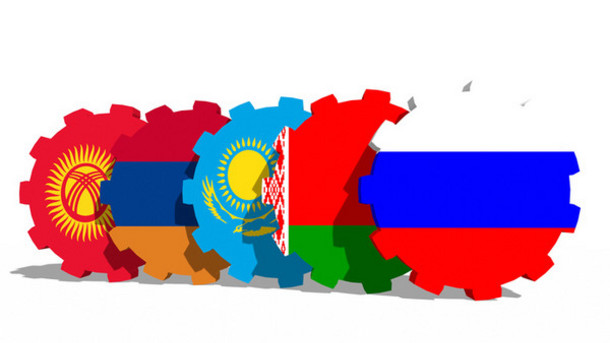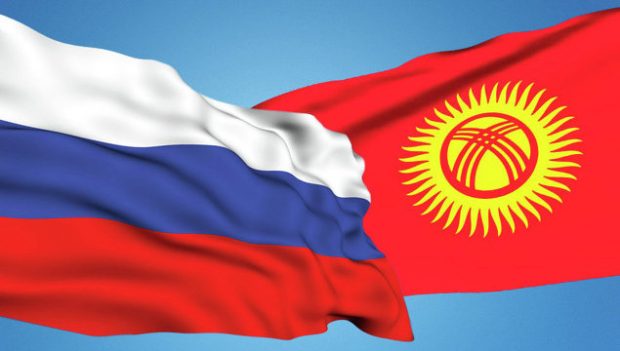
Toward a new equilibrium in Kyrgyz-Russian relations
“Touring Central Asia…” is what has been named of President Vladimir Putin’s scheduled trip to the capitals of Central Asia. He will visit Tajikistan and Kyrgyzstan and perhaps, Kazakhstan and Uzbekistan. Moscow has close political and economic ties with each of these four republics. But of course, there are still unresolved issues. Experts say that visiting only four of these countries will mark a record-breaking trip made by Putin in recent years.
Kyrgyzstan and Russia are strategic partners. Between the two countries, a long-term friendship of collaboration lies. It is also said that the two are always on the same side. Even last year, Russian President Vladimir Putin, speaking to the heads of diplomatic missions in Moscow, presented his credentials to the Ambassador of Kyrgyzstan to Russia Bolot Otunbayev, called Kyrgyzstan as a strategic ally and declared its readiness in helping to adapt to the EAEC (Eurasian Economic Union). “Kyrgyzstan is our strategic ally and partner in the Eurasian integration. We regularly meet with President Almazbek Atambaev. We support them with constant business and constructive dialogue. We will continue to assist in the social and economic development of Kyrgyzstan and its adaptation to the membership in the Eurasian Economic Union,” said Putin.
However, in December 2016, during a summit in Russia of the EAEC, it was discovered that Kyrgyzstan had its own claims to the integration model. The key agenda of the summit was the countries that had signed in participation; members of the EAEC Customs Code (the basic document regulating the customs legal relations on the territory of the EAEC). The code was prepared for several years and all the basic parameters had been agreed upon. But at the last moment, Kyrgyzstan refused to sign the agreement plan. Kyrgyz President Almazbek Atambayev at the meeting of the Supreme Eurasian Economic Council in St. Petersburg said that the Kyrgyz Republic’s accession to the EAEC had “both positive aspects and negative. Unfortunately, [in this case] the negative sometimes prevails, and it generally affects the way the people of Kyrgyzstan responds to the country’s accession to the Eurasian Economic Union. It naturally imposes a negative imprint on the economic impact of the integration of Kyrgyzstan into the Eurasian Economic Union,” said Atambaev.
 According to experts, the first issue to be discussed between Russia and Kyrgyzstan regard the EAEC. The issue, here, is that Kyrgyzstan ends with a grace period of stay in the EAEC and has still not resolved problems with the accession of Kyrgyz goods to the European market. Since not many countries have received gotten a certification laboratory, many are slow in receiving Kyrgyz goods. From time to time, Kazakhstan tries to delay the opening of their markets for Kyrgyz products.
According to experts, the first issue to be discussed between Russia and Kyrgyzstan regard the EAEC. The issue, here, is that Kyrgyzstan ends with a grace period of stay in the EAEC and has still not resolved problems with the accession of Kyrgyz goods to the European market. Since not many countries have received gotten a certification laboratory, many are slow in receiving Kyrgyz goods. From time to time, Kazakhstan tries to delay the opening of their markets for Kyrgyz products.
There is also a problem with the migration issue of the Kyrgyz people in Russia. Since 2017, a law came into force in Russia that abolished the quota for foreign labor under which migrants are hired to work on the patent. Now, in order to work in Russia, workers must obtain a patent of a new sample. Patents Issue in December 2014, for which the advance payments made, will be valid until March of this year. In the case of any delays in patent submission, workers will be fined approximately 5-10 thousand rubles. Furthermore, even with a patent, migrants will be required to submit a certificate of passing an examination on knowledge of the Russian language, Russian history, health insurance and Russian health certificate. These official documents cannot be made ready in one day and indeed, such difficulties will bring a lot of problems for the migrants. Unofficial data reveals over than one million migrants from Kyrgyzstan live and work in Russia.
This year also marks the presidential elections in Kyrgyzstan. At the same time, Moscow is important in understanding what will be the political future of the country. Moreover, according to some local experts, this trip will be Putin’s farewell visit with the current President of Kyrgyzstan.
Finally, trade and economic relations between Kyrgyzstan and Russia will be discussed. Russia is the leading trade partner of Kyrgyzstan. According to the official data of the Russian Embassy in Kyrgyzstan has over 70% of Russian-Kyrgyz trade turnover which traditionally accounted for such Russian regions as St. Petersburg, Orenburg region, Omsk region, Moscow, Altai region, Chelyabinsk region, Sverdlovsk region, Novosibirsk region, and others.



